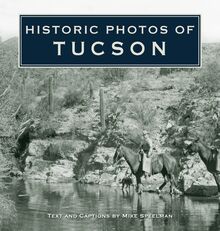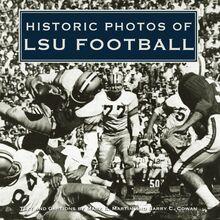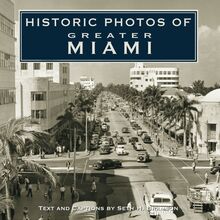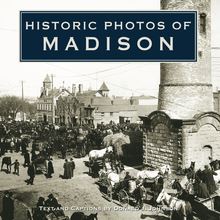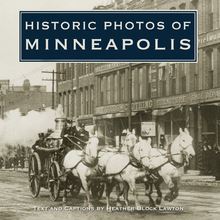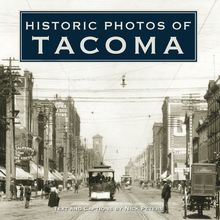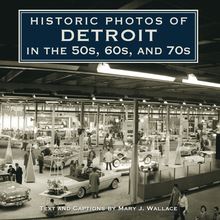Historic Photos of Cleveland , livre ebook
185
pages
English
Ebooks
2007
Vous pourrez modifier la taille du texte de cet ouvrage
Obtenez un accès à la bibliothèque pour le consulter en ligne En savoir plus
Découvre YouScribe en t'inscrivant gratuitement
Découvre YouScribe en t'inscrivant gratuitement
185
pages
English
Ebooks
2007
Vous pourrez modifier la taille du texte de cet ouvrage
Obtenez un accès à la bibliothèque pour le consulter en ligne En savoir plus
Publié par
Date de parution
01 mars 2007
Nombre de lectures
0
EAN13
9781618586155
Langue
English
Poids de l'ouvrage
106 Mo
Publié par
Date de parution
01 mars 2007
Nombre de lectures
0
EAN13
9781618586155
Langue
English
Poids de l'ouvrage
106 Mo
HISTORIC PHOTOS OF
CLEVELAND
T EXT AND C APTIONS BY R ONALD L. B URDICK AND M ARGARET L. B AUGHMAN
A three-masted schooner rests moored on the Cuyahoga River in the year 1900. The early machinery in view was used for unloading ore, transported across the Great Lakes to Cleveland from Upper Michigan.
HISTORIC PHOTOS OF
CLEVELAND
Turner Publishing Company
200 4th Avenue North Suite 950
Nashville, Tennessee 37219
(615) 255-2665
www.turnerpublishing.com
Historic Photos of Cleveland
Copyright 2007 Turner Publishing Company
All rights reserved.
This book or any part thereof may not be reproduced or transmitted in any form or by any means, electronic or mechanical, including photocopying, recording, or by any information storage and retrieval system, without permission in writing from the publisher.
Library of Congress Control Number: 2006937087
ISBN: 1-59652-331-X
ISBN-13: 978-1-59652-331-9
Printed in China
09 10 11 12 13 14 15 16-0 9 8 7 6 5 4 3
C ONTENTS
A CKNOWLEDGMENTS
P REFACE
V ILLAGE TO C ITY (1850-1869)
C LEVELAND S G OLDEN E RA (1870-1929)
E CONOMIC G ROWTH , THE G REAT D EPRESSION, AND W ORLD W AR II (1930-1949)
T HE C ITY D EALS WITH A DVERSITY (1950-1979)
N OTES ON THE P HOTOGRAPHS
Architect Marcel Breuer stands in front of Cleveland Trust Tower, the addition he designed to accommodate the Cleveland Trust Co. offices. The future of this building is uncertain.
A CKNOWLEDGMENTS
This volume, Historic Photos of Cleveland , is the result of the cooperation and efforts of many individuals, organizations, and corporations. It is with great thanks that we acknowledge in particular the valuable contribution of the following for their generous support:
The Cleveland Public Library
The Library of Congress
The authors would like to thank the following individuals at Cleveland Public Library for their valuable contribution and assistance in making this work possible:
Colleagues
Jean M. Collins, Librarian, Literature Department
Amy E. Dawson, Librarian, Catalog Department
Maureen T. Mullin, Librarian, Head, Business, Economics, and Labor
Photograph Collection Staff
Venechor Boyd
Neletha Chambers
Elmer F. Turner III
P REFACE
Cleveland has thousands of historic photographs that reside in archives, both locally and nationally. This book began with the observation that, while those photographs are of great interest to many, they are not easily accessible. During a time when Cleveland is looking ahead and evaluating its future course, many people are asking, How do we treat the past? These decisions affect every aspect of the city-architecture, public spaces, commerce, infrastructure-and these, in turn, affect the way that people live their lives. This book seeks to provide easy access to a valuable, objective look into the history of Cleveland.
The power of photographs is that they are less subjective than words in their treatment of history. Although the photographer can make decisions regarding subject matter and how to capture and present it, photographs do not provide the breadth of interpretation that text does. For this reason, they offer an original, untainted perspective that allows the viewer to interpret and observe.
This project represents countless hours of review and research. The researchers and writers have reviewed thousands of photographs in numerous archives. We greatly appreciate the generous assistance of the individuals and organizations listed in the acknowledgments of this work, without whom this project could not have been completed.
The goal in publishing this work is to provide broader access to this set of extraordinary photographs that seek to inspire, provide perspective, and evoke insight that might assist people who are responsible for determining Cleveland s future. In addition, the book seeks to preserve the past with adequate respect and reverence.
With the exception of touching up imperfections caused by the damage of time and cropping where necessary, no other changes have been made. The focus and clarity of many images is limited to the technology and the ability of the photographer at the time they were taken.
The work is divided into eras. Beginning with some of the earliest known photographs of Cleveland, the first section records photographs from the city s earliest days. The second section spans the years 1870 to 1929, Cleveland s golden era. Section Three moves from the Great Depression to the post-World War II era. The last section concludes with a look at images from recent times.
In each of these sections we have made an effort to capture various aspects of life through our selection of photographs. People, commerce, transportation, infrastructure, religious institutions, and educational institutions have been included to provide a broad perspective.
We encourage readers to reflect as they go walking in Cleveland, strolling through the city, its parks, and its neighborhoods. It is the publisher s hope that in utilizing this work, longtime residents will learn something new and that new residents will gain a perspective on where Cleveland has been, so that each can contribute to its future.
-Todd Bottorff, Publisher
A view of Public Square in 1857 looking east, with the Forest City House hotel, built in 1852, on the corner at right-center. The fences were erected to block traffic from running through the square. In the background is the steeple of Second Presbyterian Church, located on the south side of Superior just east of Public Square.
V ILLAGE TO C ITY
(1850-1869)
In the period leading up to the Civil War, Cleveland, like many other cities in the Great Lakes region, transformed itself from a small village into a thriving urban center.
As the decade of the 1850s opened Cleveland s population was 17,034. By the end of the 1860s it had more than doubled to 43,417. This small town laid out by Moses Cleaveland in 1796, at the mouth of the Cuyahoga River, had capitalized on its location and resources, and would emerge into one of the nation s leading urban centers.
Cleveland became an important port on Lake Erie, and served as the northern terminus of the Ohio and Erie Canal system connecting the Ohio River with Lake Erie. The lake port and canal made the city an important trading and processing center for grain. The arrival of the railroad strengthened Cleveland s position as a transportation center.
Iron ore was being shipped from Upper Michigan to steel mills in Cleveland and elsewhere in the region and sparked the growth of a ship-building industry, as well as the emergence of numerous manufacturing enterprises. By the end of the 1860s Cleveland was home to 35 oil refineries and 14 rolling mills, which provided more than 9,000 manufacturing jobs.
Central to Cleveland, and still a significant visual element in the city s landscape, is Public Square. Set aside in 1796 as a part of the city s original plan, the ten-acre open space reflects the New England roots of the original settlers. As new residential areas were developed eastward from the square, warehouses and related enterprises arose along the Cuyahoga s eastern banks.
The city played a significant role in events leading up to the Civil War. Clevelanders generally opposed slavery, and the city was a principal stop along the Underground Railroad. Following the fall of Fort Sumter in 1861, Cleveland responded to President Lincoln s call for troops and many citizens left behind businesses to help the Union battle the South in the Civil War.
The Morgan residence, Newburgh township, at what is now Broadway and Aetna Road in Cleveland, 1850.
McIlrath Tavern, ca. 1850. The hostelry was built by Abner McIlrath in 1832 at the northwest corner of Euclid and Superior avenues in East Cleveland. It served as tavern, voting place, and as an informal community center for many years. Following McIlrath s death the business closed, and after many years of neglect the building was razed, in 1890.
Civil War veterans gather on Public Square in front of the post office building. The veterans display their battle flags during the ceremony for mustering out of the regiment.
President Abraham Lincoln s body lies in state, April 28, 1865. Cleveland was one of the many railroad stops made by the funeral train carrying the president s body to its final stop in Springfield, Illinois. An elaborate, canopied pavilion was erected on Public Square to hold the slain president s catafalque for public viewing. In front of the pavilion is the Commodore Oliver Hazard Perry monument.
A view of the pavilion and catafalque for the coffin of President Abraham Lincoln. The hearse and six white horses used to move Lincoln s coffin from the railroad terminal to the square are visible to the right of the pavilion.
The steam locomotive Nashville at Union Station in 1865. The crew is waiting to take President Abraham Lincoln s body from Cleveland to Columbus.
Residence of John Blair at 802 Prospect Street, 1865. John Blair came to Cleveland in 1819 from Maryland with $3 in his pockets. Within a few years he turned his speculation in pork into a large and prosperous produce and commission business, with a warehouse along the Cuyahoga River. Blair also served on the board of directors of the Commercial Bank of Lake Erie, and was elected Cleveland councilman in 1836.
The Cuyahoga River as seen from the Center Street Bridge, looking south, 1865. The Center Street Bridge was the only swing bridge in the area and was purportedly located at the site of Moses Cleaveland s landing in 1796.
This is the earliest known photograph of the Ohio and Erie Canal in Cleveland, ca. 1859. Built in 1832, the canal s usefulness was ending as railroads became the preferred means of transport. These buildings stood in the Flats, east of the Cuyahoga River. The high ground visible at rear is a residential area south and east of downtown Cleveland.
The west side of Public Square looking no


